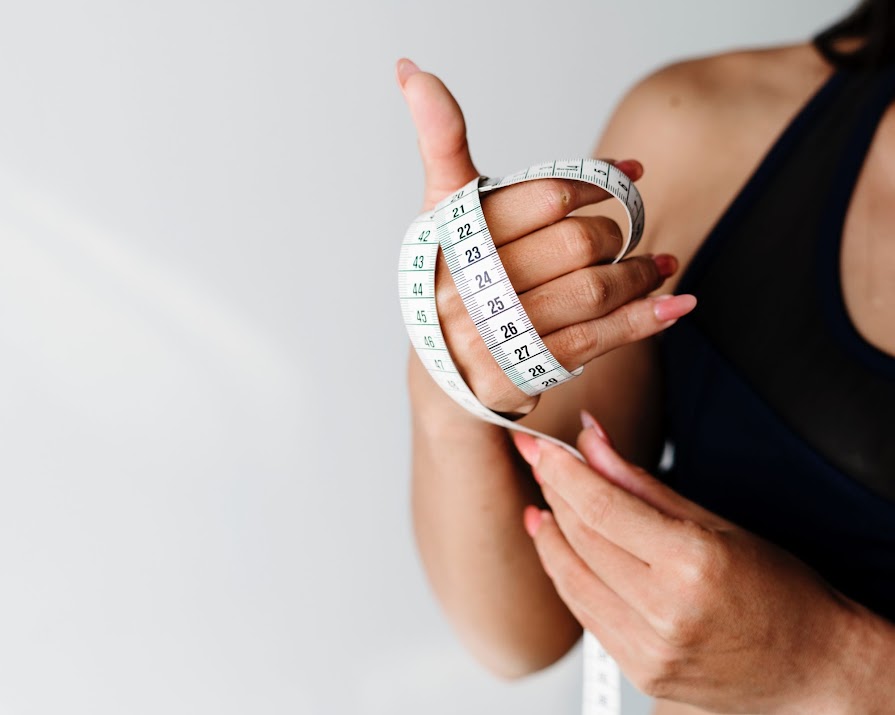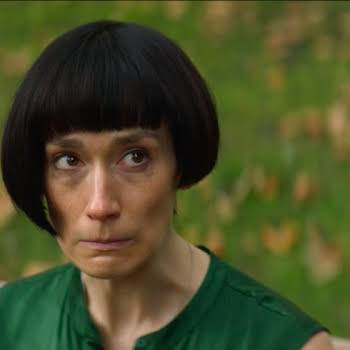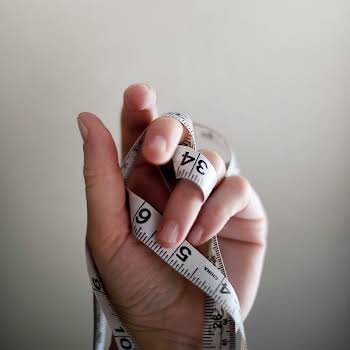
Weighing in: A woman’s happiness is not tied to her weight and here is why
By IMAGE
06th Mar 2019
06th Mar 2019
Why is a woman’s happiness always tied to her weight? Róisín McVeigh says it’s high time we change the narrative.
Imagine if you could be weightless. Of course, it’s impossible. You’d float off in the sky and away into space, until perhaps you encountered some gravity on the moon. But what if weightlessness occurred on a more psychological level? By this I mean, what if our weight had nothing to do with our sense of self as women?
This summer was the warmest I had ever experienced in Dublin. I was grateful because my soul needed it. It had been almost a year since my dad died, and most of that time had been spent in a fairly nihilistic haze of grief, but over the course of the summer months, I finally started to put myself back together again.
Have you lost weight?
The sun helped to drag me out of the doldrums, as it always does in the aftermath of the dark Irish winter, although this especially scalding summer felt more necessary than ever. I spent most of my time outdoors in nature, cycling, running and hiking, swimming in the sea, reading at the beach, and consciously surrounded myself with close friends and family, people who knew the person I was before and could help rebuild her.
What does that have to do with weight, you might be thinking. Exactly. “Have you lost weight?” people started to ask me, as casually as if to be talking about the weather. Maybe I did, maybe I didn’t.
Related: I lost three stone in weight but I still wasn’t happy
It wasn’t something I had thought about. The number on the scales never occured to me. It wasn’t the root of my newfound contentment. Perhaps it was a byproduct of it, but I really did not care, nor did I notice. The personal progress I thought I had made felt tainted.
Couldn’t they just say that I looked great? Couldn’t they see that I was coming back to life? Wasn’t it apparent that this was me rising from the ashes? That this transformation was more existential than Slimming World? Did I look fat before? Just like that, my weightlessness became weighted. Why is it that a woman’s happiness is so often tied to how much or how little space she takes up in a room?
Body issues
I have had my fair share of body issues. My weight has always fluctuated between a size 8 and a 12. At different times in my life, I have been told that I have “the perfect body” and at others, I have been nicknamed “Chubby” by male co-workers. I never thought anything of this because the objectification of female bodies is so normalised, and I lacked the ability I now possess (thanks feminism) to read between the lines.
I would secretly revel in someone commenting on how thin I looked, feigning modesty as my stomach rumbled, or when I was “playfully” referred to as chubby, I would laugh along while feeling quietly ashamed, self-consciously tugging at my shirt. This affected me for a period of time. I became obsessed with exercise, running up and down the stairs when no one was home, among other bizarre routines.
I dabbled with calorie restriction, starving myself for most of the school day, unable to focus in class, daydreaming of the bowl of tomato soup I would have after school. What I now know is that losing and gaining weight is nothing to be ashamed of. This is normal. Life happens. Bodies change. Yet I was made to feel that it wasn’t normal, that I should maintain the body of my 16-year-old self forever, and that in not doing so, I was somehow a failure.
Media
I have since grown tired of thinking and talking about weight – yours, mine, hers, whoever’s. A subject that was once a point of personal obsession has lost its hold over me. It wasn’t a conscious decision, but something that happened gradually over time. In realising that my value lay elsewhere – my humour, my opinions, my empathy – and that people responded to these more than anything, I stopped focusing so much on my body. It feels like a healthy headspace to be in, and I am proud I got here, but it is not an easy one to maintain.
We live in a society that continues to bombard us constantly with reminders that if we are not thin enough, we are not good enough. These thought habits are so deeply ingrained that they have become naturalised and internalised. The media sets the expectations, but we impose them on ourselves, and each other. A state of weightlessness is a precious thing, and it requires maintenance to shield it from a culture that does not want it to exist.
As I grow older and more despondent with the media, wise to their trickery and fables, I feel myself becoming increasingly weightless, but also wondering why it took so long to get here and why it is such a delicate position to occupy? One only has to walk around an art gallery to see the history of the male gaze as told by the endless display of female nudes painted by men. Today, this manifests itself in a society in which women feel like they are constantly being watched.
An environment in which it is extremely difficult to be oneself. We see this in a celebrity culture and media sphere that is rife with inauthenticity: a fashion industry that encourages women to diminish themselves, a reality TV family capitalising off of their fans’ low self-esteem, a porn industry that completely disregards female pleasure, and social media channels that provide the tools for any one of us to regurgitate and reinforce the message underlying all of this: that women’s bodies are made for consumption.
Post-baby body
The fetishisation of the post-baby body epitomises the toxicity of this mindset. A mother’s body is almost as much of a focus as the baby. As it should be – it has just created a fully formed human, after all. Yet women are not congratulated for this. Instead, they are congratulated on the speed with which they have shed the baby weight and returned to their former shape.
When I see a post-baby body cover story, airbrushed as ever, I do not feel inspired or awe-filled or jealous, I feel a knot tighten in the pit of my stomach because I know it is not real, but that somebody will believe that it is. Weight loss as entertainment. Celebrities paid thousands to drop pounds quicker than you’d boil the kettle, armed with personal trainers and chefs to help them. Fake news, a little voice in my head shouts. This is a sickness.
Related: This is why we shouldn’t celebrate weight loss
Ariana Grande was not wrong when she sang “God is a Woman”, but why did she have to sing it in the first place – isn’t it obvious? We are taught to believe that our bodies are not good enough, even when we have brought a new human into the world. Yet look at all of the miraculous things they are capable of: menstruation, childbirth, breastfeeding.
Then there is the biological clock and menopause, what Zadie Smith calls “timepieces” built into our bodies. Women are repeatedly expected to create miracles, bodily and otherwise, to be all things and in all places. And yet most religions believe God is a man? Fair enough.
Weightlessness
Our bodies are so much more than what they weigh, as are we. They are powerful pieces of machinery that can withstand immense trauma and transformation, they can repair wounds and bones and fight cancers and run marathons and have orgasms. So why do we hate our bodies so much? Because corporations can’t sell fantasies to people who accept themselves.
Weightlessness is unpicking the subliminal ways that society tries to control women’s bodies. It is understanding that people come in all shapes and sizes, that normal is what you see on the street, not on Instagram. It is realising that some days you will feel more comfortable in yourself than others, and that’s OK. Weightlessness is knowing when to call bullsh*t, and having the strength to say, “society wants me to shrink, but I won’t do it”.
By refusing to drink the Kool-Aid, we can change the narrative.
























